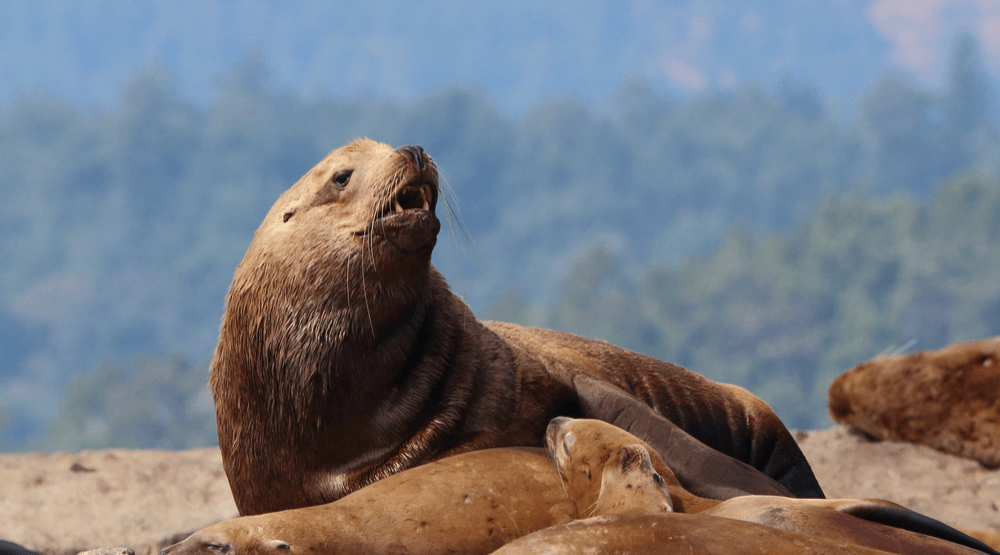
With the return of summer-like weather, it’s a given that more people are going to be following the call of the wild and heading out into the wilderness to enjoy all Mother Nature has to offer – especially over the long weekend. And with this, there’s the possibility of running into the creatures that call the great outdoors home.
So it seems like now is the perfect time for a little reminder: Don’t feed the wildlife.
You see, these are all wild animals. They (and generations of their ancestors) have survived thus far without your help. While you may think that you’re “doing a good deed” by tossing some food their way, more often than not, this act has the exact opposite effect.
Feeding wild animals causes them to become habituated, lose their natural fear of humans, and cause further problems, ultimately losing the very definition of what makes them “wild” in the first place.
In fact, in a number of cases, the situation often results in the animal having to be put down, or dying prematurely due to its inability to digest what we call food.
So, to help clear up any confusion, here are 21 different types of wildlife you should definitely NOT feed in Vancouver – or the surrounding area:
Sea Lions

In case you needed any more proof that feeding these large wild animals is a bad idea, an incident last year in Steveston should make it clear.
Raccoons

Raccoon / Shutterstock
While raccoons are generally harmless to humans, don’t let their cute faces fool you. When they lose their fear of people, they can become aggressive towards food sources (ie: you), and injure pets.
Beavers

Beaver (Eric Zimmer / Daily Hive)
Beavers are pure vegetarians, subsisting solely on woody and aquatic vegetation. Don’t mess this up. They are not known to attack humans, but can become habituated and lose their ability to find food and fend for themselves in the wild if fed.
Black Bears

Black bear / Shutterstock
While Black Bears in the wild generally pose no threat to humans, this can drastically change if they are fed human food. Bears can quickly become dependent on it, associating people with their food source, and in turn, making them dangerous. More often than not, they have to be euthanized as a result.
Marmots

Hoary Marmot near Whistler (David P. Lewis)
Human food isn’t healthy for marmots, and if they become dependent on it, they lose their natural foraging ability. They can either get sick as a result, or die from the lost ability to fend for themselves.
Skunk

Skunk / Shutterstock
Why anyone would want to feed a skunk is beyond us. But, they are wild animals, and unless you want to be stuck in a smelly situation, they are best avoided at all costs.
Gopher

Shutterstock
Human food isn’t healthy for gophers, and if they become dependent on it, they lose their natural foraging ability. They can either get sick as a result, or die from the lost ability to find food themselves.
Canada Geese

Canada Goose / Shutterstock
Our food isn’t healthy for geese, and if they develop a dependence on human handouts they could struggle to survive in the wild.
Coyotes

Coyote / Shutterstock
Coyotes aren’t generally a threat to humans, but feeding them can cause them to lose their natural wariness of people, and this can lead to further conflict or euthanization of the animal.
Cougars

Cougar / Shutterstock
Cougars are wide-ranging animals and may show up in urban settings from time to time. If they are passing through it is important they do not find prey items that may encourage them to stay.
Herons

Heron / Shutterstock
Herons fed by humans lose their ability to fend for themselves.
Deer

Deer / Shutterstock
Supplemental feeding alters the normal avoidance behaviour of deer toward humans. Once used to the food, deer lose their natural wariness of people and may become aggressive toward humans either in protection of, or in seeking, food sources
Loons

Loon / Shutterstock
The digestive system of a loon was never meant to handle human food.
Sea Otters

Sea Otter / Shutterstock
Cute? yes. But otters fed by humans lose the ability to fend for themselves.
Seagulls

Seagull / Shutterstock
While it may seem like they don’t care what they eat, feeding seagulls is never a good idea. Once dependent on our food, they can become a serious annoyance in highly-populated areas – such as Vancouver’s beaches on a hot summer day. In addition, their digestive systems were never meant to handle human food.
Grizzly Bears

Grizzly Bear / Shutterstock
- See Black Bears
Squirrels

Squirrel / Shutterstock
Human food isn’t healthy for squirrels, and if they become dependent on it, they lose their natural foraging ability. They can either get sick as a result, or die from the lost ability to find food themselves.
Ducks

Ducks/ Shutterstock
A duck’s digestive system was never meant to handle human food. So don’t feed them it.
Wolves

Wolf / Shutterstock
Wolves aren’t generally a threat to people, but feeding them can cause them to lose their natural wariness of civilization which in turn could cause them to become a danger to us and themselves.
Frogs

Frog / Shutterstock
Frogs enjoy a nice diet, consisting mainly of insects. Let’s keep it that way.
Chipmunks

Chipmunk / Shutterstock
Alvin, Simon, and Theodore aren’t real. So don’t go treating your average Chipmunk like their animated counterparts.

